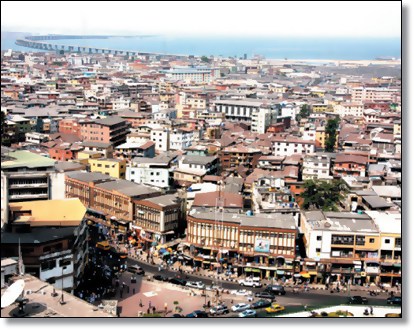The Ugly Side of Housing Delivery in Nigeria
It is common knowledge that the average Nigerian presently lives in abject poverty, though the ruling class pretend not to be aware. Sadly, poverty and poor housing have direct bloodlines. This article analyses poor housing delivery in Nigeria.
A huge percentage of our populace live in inadequate or inappropriate housing, or worse still totally homeless, especially in urban cities. In spite of the various government policies, the country continues to have a good number of her citizens roaming on our vast land with no place to call home. Some can even be found in the unpopular Sambisa forest living like wild animals, yet depriving young girls who once had a roof over their heads, shelter.
On the supply side, various government policies in the past have been formulated towards overcoming the huge shortage through several Housing Reform Programmes. Despite these past efforts, housing continues to be a mirage to the ordinary Nigerian.
What are the problems hindering the delivery of housing in Nigeria?
It becomes pertinent that ‘The Government of the day’ through the Ministry of Powers, Works and Housing take time out to identify the various causes of housing delivery problems, examine different housing policies over the years, and suggest ways out for sustainable housing delivery.
Housing is a critical component in the social and economic fabric of any country. Housing represents one of the most basic human needs. To most groups housing means shelter but to others it means more as it serves as one of the best indicators of a person’s standard of living and his or her place in the society.
It is a priority for the attainment of living standard and it is important to both rural and urban areas. These attributes make demand for housing endless. As population growth and urbanization continue to increase very rapidly, so does the gap between housing need and supply widen.
Cultural factors such as preferences and values or social status, taste and financial resources, also influence a house physical characteristics. In developing countries, poor housing delivery has been attributed to inadequate mechanisms and systems for land allocation, funding, mortgage institutions and infrastructure.
It is quite unfortunate that adequate housing supply continues to elude people in the lower cadre of the society. The situation is very particular to most developing countries where population grow at exponential rate and rapid urbanization becoming a norm, while discrepancy in housing need and supply is high. The need for housing in Nigeria is enormous, in view of the 17 million units housing deficit, hence, various authorities have proffered strategies for improving housing delivery in Nigeria. But it’s the same old game; all talk, no action.
In as much as various policies have been put in place by the Nigerian Government from time immemorial to counter the problem of housing delivery, it hasn’t gotten any better. The shortcomings of these policies have made any breakthrough almost impossible.
In order to increase housing stock in Nigeria, there is the need to incorporate affordable housing delivery scheme into the formulation and implementation of housing policies and programmes which should not be at the exclusive preserve of Federal government, at the exclusion of government at local government level.
There is a need now to reach out and effectively involve the people and government at grassroot levels in the formulation of housing policies.
The Federal government has been directly involved in the construction of buildings for all categories in the past and even presently. It is now necessary that housing must be considered as a personal service and as such, the primary responsibility of housing should not be left with the people themselves who, however, should be assisted in some ways in order to realize their aspirations for self- actualization of owning individual houses.


